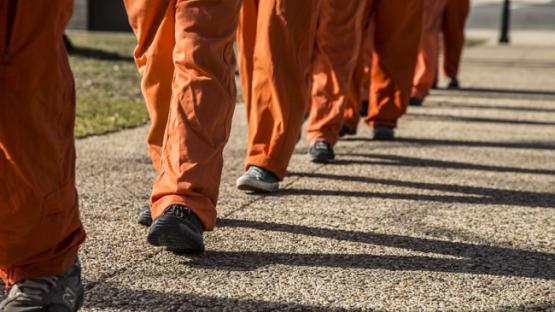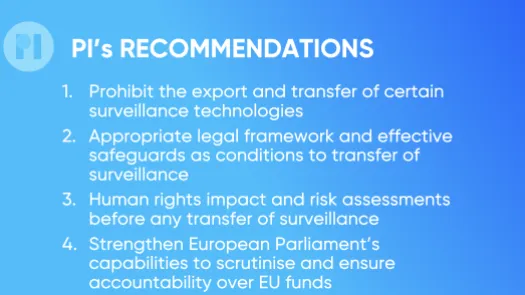
…it can protect us from torture
No one has the right to torture you.

The prohibition against torture is absolute. There are no exceptional circumstances whatsoever which can be used to justify torture.
And yet, torture is still being carried out by state officials around the world, driven by states’ ability to surveil dissidents, and intercept their communications.
In 2007, French technology firm Amesys (a subsidiary of Bull) supplied sophisticated communications surveillance systems to the Libyan intelligence services. The systems allegedly permitted the interception of all country-wide, on-line and phone communications and the subsequent processing of collected data. Under the Regime of Muammar Gaddafi, the technology became a weapon that facilitated the targeting, arrest and imprisonment of thousands of people in Libya. In 2011 the International Federation for Human Rights (FIDH) and la Ligue des droits de l’ homme (LDH) brought a criminal case against Amesys for complicity with human rights abuses committed by the Gaddafi regime in Libya because they provided to it surveillance equipment.
In 2018, Theresa May publicly issued an unprecedented apology for Britain’s role in the kidnap and torture of Libyan dissident Abdel Hakim Belhaj and his wife, Fatima Boudchar by the Gaddafi regime. UK’s Secret Intelligence Service (MI6) shared intelligence with the CIA and Libya’s External Security Agency, leading to their abduction. The couple were seized in Thailand in 2004, hooded, shackled and taken to one of Gadaffi’s prisons. Boudchar was four and a half months pregnant when she was abducted and was released just before giving birth. Belhaj was tortured and sentenced to death. He was finally released after 6 years.
For people at risk of torture, privacy is essential. If you’re a human rights defender, a journalist, or a political dissident your ability to carry out your work, to protect your sources, and to properly hold the government to account your safety is based on your ability to communicate and move around privately. Privacy, when properly respected should prevent states with poor human rights records and other malicious actors from monitoring individuals’ communications.
No one shall be subjected to torture or to cruel, inhuman or degrading treatment or punishment. Article 5, Freedom of torture
* Photo by Justin Norman



